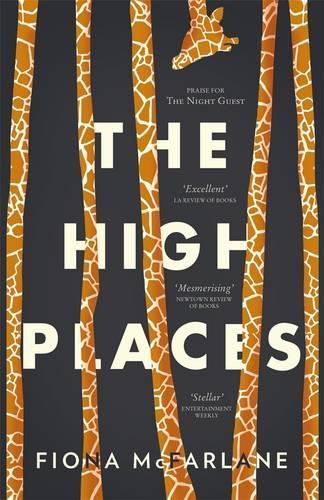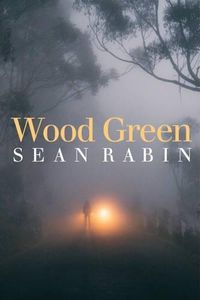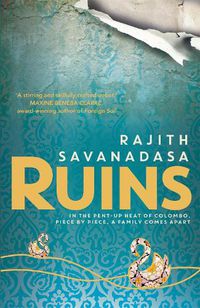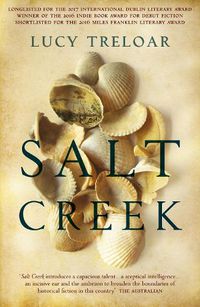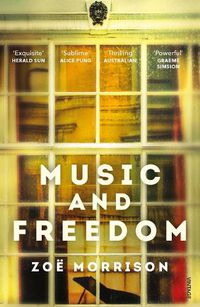Read an extract from The High Places by Fiona McFarlane
We’re delighted that The High Places by Fiona McFarlane is one of the six books shortlisted for this year’s Readings Prize for New Australian Fiction. Here is a short extract from ‘Exotic Animal Medicine’, one of the stories in the collection.
Find more information about this year’s shortlisted books (including the judges’ report) here.
The wife was driving on the night they hit Mr Ronald.
‘My first drive since getting married,’ she said.
‘First this, first that,’ said her husband. He looked at her, sitting high in the seat: her hair looked flimsy and blonde. It was ten o'clock and only just dark. These were the days for marrying – the long days, and the summer. It hadn’t rained.
‘You’ve got to be thankful for the weather,’ the registrar had said to the husband. The husband was thankful for the weather and for everything else. He carried his shoulders inside a narrow suit and his wife wore a blue dress. They came out of the registry office into the pale summer and St Mary’s rang the hour.
‘Listen!’ said the wife. ‘Just like we’ve been married in a church.’
It was midday, and because they were in Cambridge the college bells also rang.
‘Like we’ve been married in every church,’ said the husband.
Their witnesses – two friends – took photographs. The four of them went to a pub on the river to celebrate among the tourists and the students who’d just finished exams. The tourists pressed around them, clumsy at the bar; the students slipped through and were served first. The bride and groom were rocked from side to side in the crush. They co-operated with the crowd and liquid spilled over their glasses.
They began to drink.
Their friend Robbie swayed above their table. He motioned over their heads with his benevolent arms.
‘I suppose I’m best man,’ he said. ‘By default. So, a toast: to
David and Sarah. To Sarah and David. I’ll make a statement about love. I’ll say a few words.’
‘You’ve already said more than enough,’ said the other witness, Clare.
‘Not nearly enough,’ said Robbie, and sat down.
By now it was four in the afternoon and the June town was keeping quiet. The lawns maintained their perfect green.
The river lay straight like a track for trains. David and Sarah and Clare and Robbie walked along it to find another pub, and beside them swans idled on the brown water, ducks chased punts for food, geese slid against the wet banks. Tinfoil barbecues were lit on Jesus Green, one by one, and the smoke hung in morose columns above each group, never thick enough to form a cloud. The husband and wife and their friends picked their way among the barbecues. They encountered dogs, friendly and wayward.
‘Stay well today, canines,’ said David. ‘Stay happy and healthy.’
Sarah was on call that night.
‘I’m not worried about them,’ said Sarah. ‘It’s the Queen of Sheba I’m worried about. But he’ll be good.’
(At the surgery, the Queen of Sheba lifted his haunches and lowered his head to stretch his grey back. He walked figure eights in his cage, the way a tiger would.)
‘He’d better be good,’ said David.
‘That bloody cat,’ said Sarah happily.
(The Queen of Sheba sat in his cage at the surgery and looked out at the ferrets and iguanas. He looked out at the tanks of scorpions and turtles. He settled, sphinx-like, and crossed his paws. The nurse poked her fingers through the grille as she passed Sheba’s cage and Sheba, yawning, ignored them.)
The crowd at the pub seemed to part before the bridal party and they found an outdoor table, newly abandoned. Their happiness brought good luck. Sarah said, ‘I should stop drinking.
I might have to work.’
‘You might,’ said Robbie, ‘and you might not.’
‘This is your wedding reception,’ said Clare, and she placed her arm around Sarah, coaxing.
‘You need a gin and tonic,’ said Robbie.
‘My first gin as a married woman,’ said Sarah. She sat beside David and felt the day carry them toward each other. The hours passed at the pub and they didn’t go home, although this was what they looked forward to: the privacy of their bed below smudged windows, its view of small gardens, and the beat of trapped bees against glass that shook as the buses moved by.
Their bed was a long way from the colleges and the river but the bells would still come over the roads and houses, and they would be alone, and married. The day moved them toward the moment in which they would face each other in their bed and see that despite their marriage there was no change, and that this was just what they wanted.



